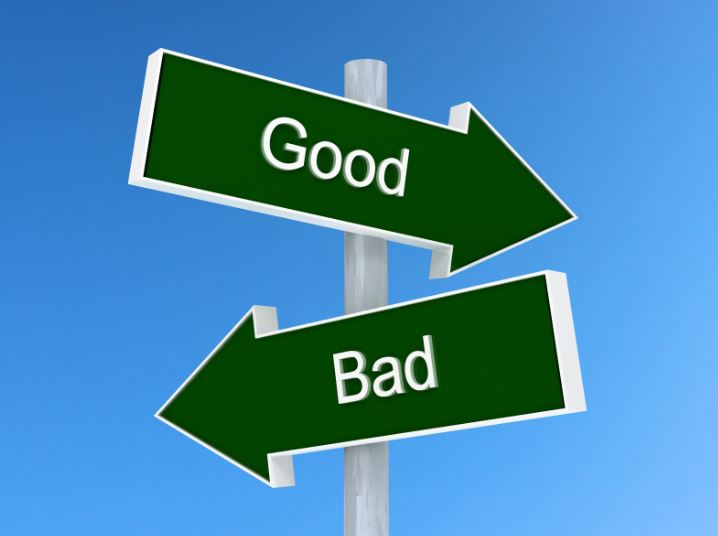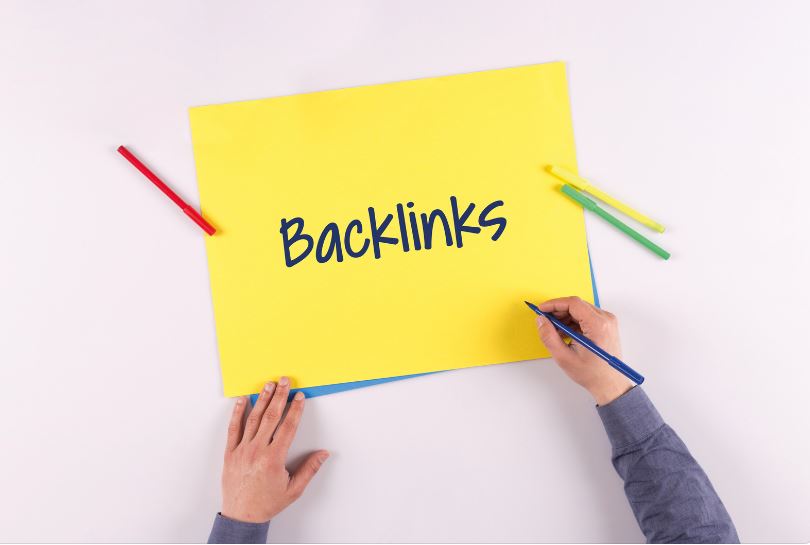Last Updated on
Are Bad Backlinks the Achilles’ Heel of Your SEO?
Unearthing the Backlink Conundrum:
In the dynamic landscape of SEO, it’s no secret that backlinks are a golden currency. They are like shimmering threads, weaving the World Wide Web together, enriching your site’s domain authority. But amid the sparkle and glitter of these links, a sinister specter lurks – the threat of bad backlinks. They can subtly erode your SEO efforts like termites gnawing at the core of your digital fortress.
The Dangerous Dance with Bad Backlinks: Unveiling the Unseen Adversary
Poor-quality backlinks are the invisible puppeteers, pulling the strings of your website’s rankings without your knowledge. They are planted stealthily on low-quality websites, in unnatural, forced contexts, or come from unrelated or suspicious sources. Like harmful weeds in a garden, they infiltrate and sabotage your site’s credibility in the eyes of search engines.
Exposing the Backlink Battleground: How Do Bad Backlinks Impact Your SEO?
The impact of bad backlinks can ripple through your website’s SEO efforts like a destructive tidal wave. They prompt search engines to question your site’s legitimacy, like a disapproving glare from a stern headmaster. The penalty can be harsh; you may see a drastic drop in rankings, your organic traffic may evaporate, and your once-thriving website could become a barren digital wasteland.
The Backlink Ballet: Understanding the Delicate Balance Between Good and Bad Backlinks
A good backlink is like a solid handshake or an affirming nod, reinforcing your credibility and authority. They are from reputable sources, aligned with your niche, and contribute valuable information to their context. But the delicate ballet of managing backlinks isn’t just about accumulating good ones—it’s equally about identifying and rectifying the damaging ones.
The Backlink Busters: Tools to Expose and Eliminate Bad Backlinks
Fortunately, we’re not powerless in the face of bad backlinks. Tools like Google’s Disavow tool, SEMrush, Ahrefs, and Moz can help turn the tide, acting as digital detectives and surgeons, rooting out bad backlinks and allowing you to disavow them.
The Backlink Cleanup: How to Disavow Harmful Backlinks
Disavowing bad backlinks is akin to performing a surgical procedure on your website, delicately excising the malignant parts without affecting the healthy ones. Google’s Disavow tool is your scalpel, enabling you to pinpoint and remove these damaging elements.
The Ever-Evolving Landscape: Keeping an Eye on Your Backlink Profile
The online world is not static; your backlink profile shouldn’t be either. Regularly auditing your backlinks can help you stay ahead of the curve, identify potential threats, and keep your SEO efforts robust and resilient.
The Road Ahead: Building a Quality Backlink Portfolio
Building a robust backlink profile is an art and a science. It requires a strategic approach, compelling content, and genuine connections with authoritative sites in your niche. As you embark on this journey, remember the focus should be on quality, not quantity. A single strong backlink is worth a hundred poor ones.
Through understanding and strategic effort, the shadows cast by bad backlinks can be lifted. With vigilance, persistence, and a little help from the right tools, your SEO efforts can thrive, turning the threat of bad backlinks into a bump in the road to digital success. In the grand orchestra of SEO, backlinks play a vital role, but remember; how you conduct them determines the melody.
Discover the power within to control the narrative, weaving a web of quality backlinks and leading your website to unrivaled SEO prosperity. The path to overcoming bad backlinks is illuminated by knowledge, fortified by action, and cleared by persistence. Forge ahead, and let your website stand tall in the digital realm, unscathed by the menace of bad backlinks. Unveil the mystery, master the ballet of backlinks, and let your SEO efforts soar to unprecedented heights.
FAQs
What makes a backlink bad?
A backlink can be considered “bad” or low-quality when it possesses specific characteristics that may negatively impact your website’s SEO and reputation. Here are some factors that can make a backlink bad:
- Outside of unrelated source: Backlinks from websites or pages unrelated to your industry, niche, or content can be considered low-quality. Search engines prefer backlinks from relevant and authoritative sources that demonstrate a natural connection to your website’s topic or content.
- Low domain authority: If a backlink comes from a website with quiet domain authority or credibility, it may not provide much value in terms of SEO. Domain authority is a metric that indicates a website’s overall strength and trustworthiness. Backlinks from high-authority websites carry more weight and are generally considered more valuable.
- Paid or sponsored links: Search engines discourage the practice of buying or selling links, as it goes against their guidelines. Backlinks obtained through paid or supported arrangements without proper disclosure can be considered manipulative and may lead to penalties. It’s essential to focus on acquiring organic and natural backlinks.
- Excessive reciprocal links: Reciprocal links, where two websites mutually agree to link, can be seen as an attempt to manipulate search rankings. While occasional reciprocal linking may not be problematic, excessive reciprocal linking solely to boost rankings can be seen as unnatural.
- Link farms or link schemes: Backlinks from link farms, link exchanges, or any other type of link scheme designed to inflate the number of backlinks artificially can be detrimental to your website’s SEO. Such practices are considered spammy and can result in penalties from search engines.
- Low-quality or spammy websites: Backlinks from websites with poor content, excessive ads, or a history of spamming can harm your website’s reputation and rankings. Evaluating the quality and credibility of the websites linking to you is essential to ensure they align with search engine guidelines.
Remember, the overall quality of your backlink profile matters more than the number of backlinks. It’s crucial to focus on acquiring high-quality backlinks from relevant and authoritative sources naturally. Engaging in legitimate SEO practices, producing valuable content, and building genuine relationships with other website owners can help you obtain high-quality backlinks that positively impact your website’s SEO.
What are good and bad backlinks?
Good Backlinks:
- Relevant and authoritative sources: Good backlinks come from websites pertinent to your industry or niche. When a reputable and authoritative website links to your content, it signals to search engines that your website is trustworthy and valuable. These backlinks can positively impact your SEO.
- High domain authority: Backlinks from websites with high domain authority carry more weight in terms of SEO value. Domain authority is a measure of a website’s overall credibility and influence. Backlinks from high-authority websites significantly impact your rankings and can help improve your website’s authority over time.
- Natural and organic: Good backlinks are acquired naturally through natural means. They are not obtained through manipulative practices like buying links or participating in link schemes. Natural backlinks are editorially given by website owners who find your content valuable and decide to link to it without any incentives or coercion.
- Diverse anchor text: Anchor text is the clickable text used in a hyperlink. Good backlinks have various and natural anchor text. It’s beneficial to have a mix of branded anchor text (using your website or company name) and descriptive anchor text (using relevant keywords). Over-optimized, overly keyword-rich anchor text can be seen as manipulative and may raise red flags with search engines.
Bad Backlinks:
- Outside or unrelated sources: Bad backlinks come from websites or pages unrelated to your industry or content. Backlinks from outside sources may signal to search engines that your website is not authoritative or trustworthy in your niche.
- Low-quality or spammy websites: Backlinks from low-quality websites with poor content, excessive ads, or a history of spamming can be harmful. Search engines may consider these websites spammy or untrustworthy, which can negatively impact your website’s reputation.
- Paid or sponsored links: Backlinks obtained through paid placements or sponsored arrangements without proper disclosure can be manipulative and violate search engine guidelines. Search engines prefer organic, naturally occurring backlinks that are freely given based on the quality and relevance of your content.
- Excessive reciprocal links: Reciprocal links, where two websites agree to link to each other, can be seen as an attempt to manipulate search rankings. While occasional reciprocal linking may not be problematic, excessive reciprocal linking solely to boost rankings can be considered unnatural.
It’s essential to acquire high-quality backlinks from reputable and relevant sources. Building a solid backlink profile takes time and effort, but it can significantly benefit your website’s SEO and online visibility.





